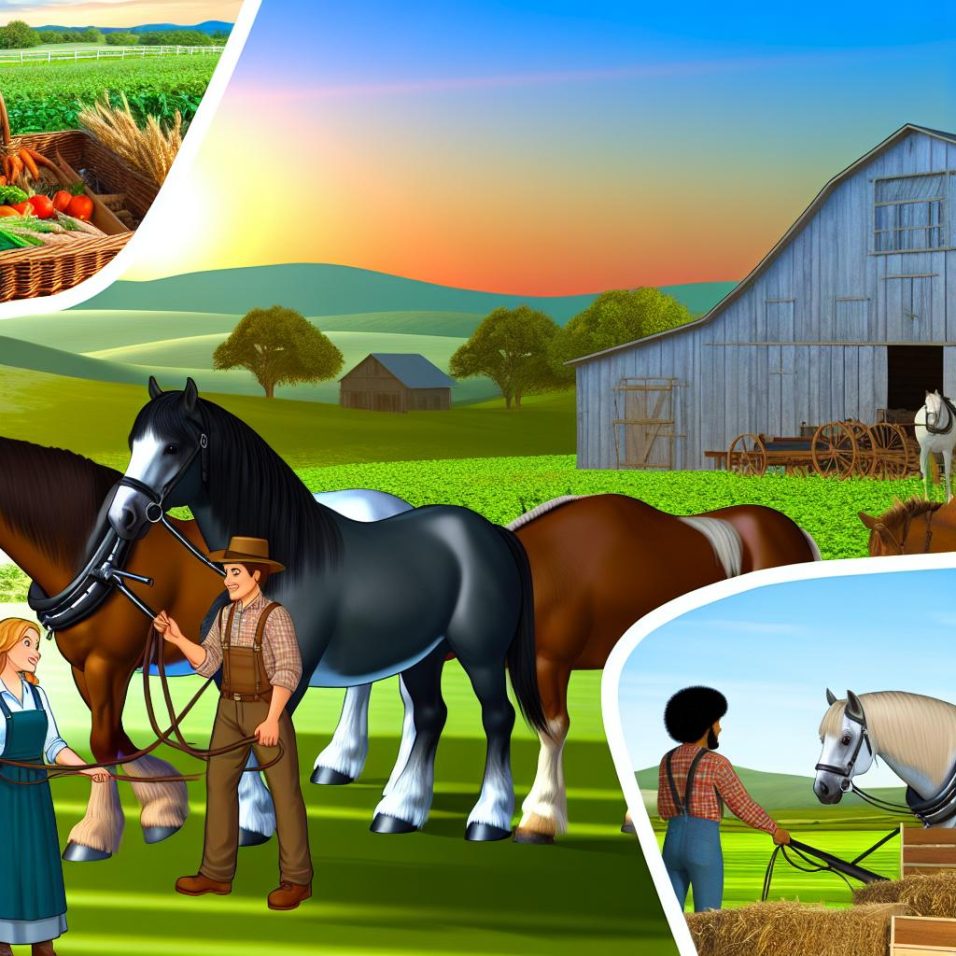The Role of Horses in Virginia’s Agricultural Economy
The state of Virginia has a profound and enduring tradition of equine activities, which makes horses a substantial contributor to its agricultural economy. This historical connection with horses stretches back to early colonial times, marking horses as instrumental in shaping the development and sustainability of Virginia’s agricultural landscape.
Historical Context
In the early days, European settlers brought horses to Virginia, where they soon became indispensable for various agricultural tasks. Horses were fundamental in the plowing of fields which was crucial for crop production. Furthermore, they were pivotal for the transportation of goods and served as the primary mode of transportation for people, facilitating communication and trade. Over the years, while the technology and modes of transportation evolved, the role of horses remained significant. Today, they continue to contribute prominently to the state’s economy through a flourishing equine industry encompassing breeding, training, and equestrian sports, among other activities.
Equine Industry and Economic Impact
The equine industry in Virginia is notable for its diversity and substantial economic impact. According to data provided by the Virginia Department of Agriculture and Consumer Services, the industry’s contribution to the state’s agricultural output is considerable. It involves several facets such as the breeding and sale of horses, participation in equestrian sports, and engagement in various recreational activities, all of which together generate significant revenue for the state.
Breeding and Sales: Horse breeding in Virginia serves multiple purposes, including sports, work, and leisure. This activity forms a crucial segment of Virginia’s rural economy. With thousands of horses bred annually, the sale of these horses contributes markedly to agricultural revenues, supporting both small and large-scale breeders and farms.
Equestrian Sports: Virginia serves as a hub for numerous prestigious equestrian events. These events draw participants and spectators from all corners of the globe, enhancing the state’s visibility and financial gains. They spur economic activity via ticket sales, as well as through the need for accommodations, dining, and other related services.
Employment and Workforce Contributions
Beyond revenue generation, the equine industry plays a vital role in employment within the state. The sector underpins thousands of jobs across various domains, such as farm management, veterinary services, farrier services, and horse training. These employment opportunities not only provide livelihoods to many but also contribute to the socioeconomic stability of rural communities, thereby cementing the industry’s position within Virginia’s economy.
Challenges and Considerations
While the equine industry has seen success, it is not without its challenges. One of the primary concerns is maintaining sustainability amid fluctuating economic conditions and managing land resources efficiently. There are also environmental concerns to consider, as equine activities must be balanced with ecological preservation. Furthermore, ensuring the welfare of animals and compliance with regulatory standards continue to be pressing priorities for stakeholders within the industry.
Addressing these challenges requires concerted efforts in education and technology investment. Innovative programs backed by both the state government and industry associations are crucial. These initiatives can help promote sustainable practices and train the next generation of equine professionals, ensuring the industry meets modern demands while preserving its rich heritage.
In conclusion, although horses have transitioned from their traditional agrarian roles, their contribution remains vital to Virginia’s agricultural economy. The equine industry’s current role reflects the evolving needs and capabilities of the sector and the broader community. Importantly, the ongoing efforts to confront contemporary challenges while honoring past traditions signal a promising future for the equine industry in Virginia. As the industry continues to adapt and grow, it reaffirms the lasting bond between Virginia and its horses, underscoring their enduring importance in the state’s agricultural narrative.


